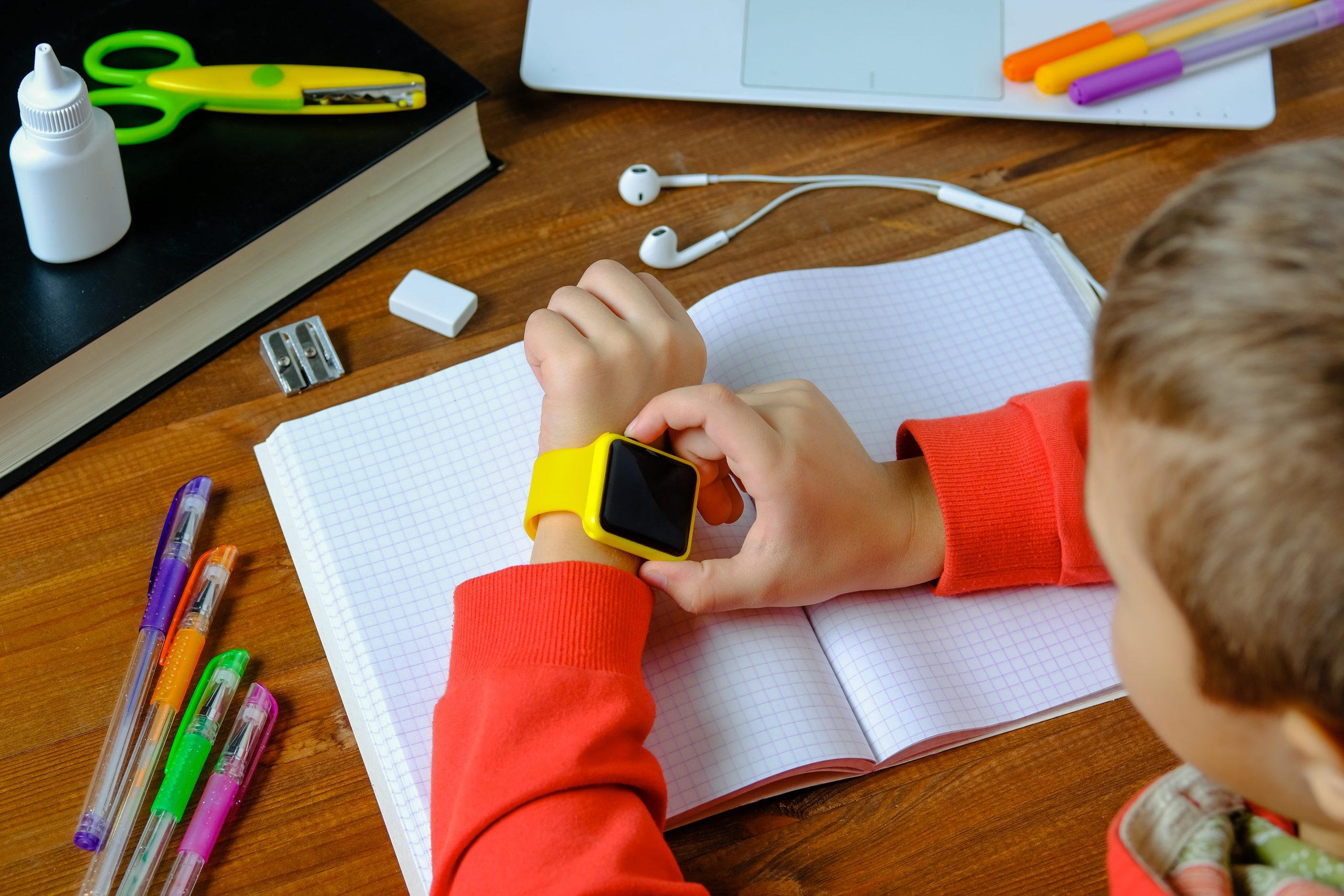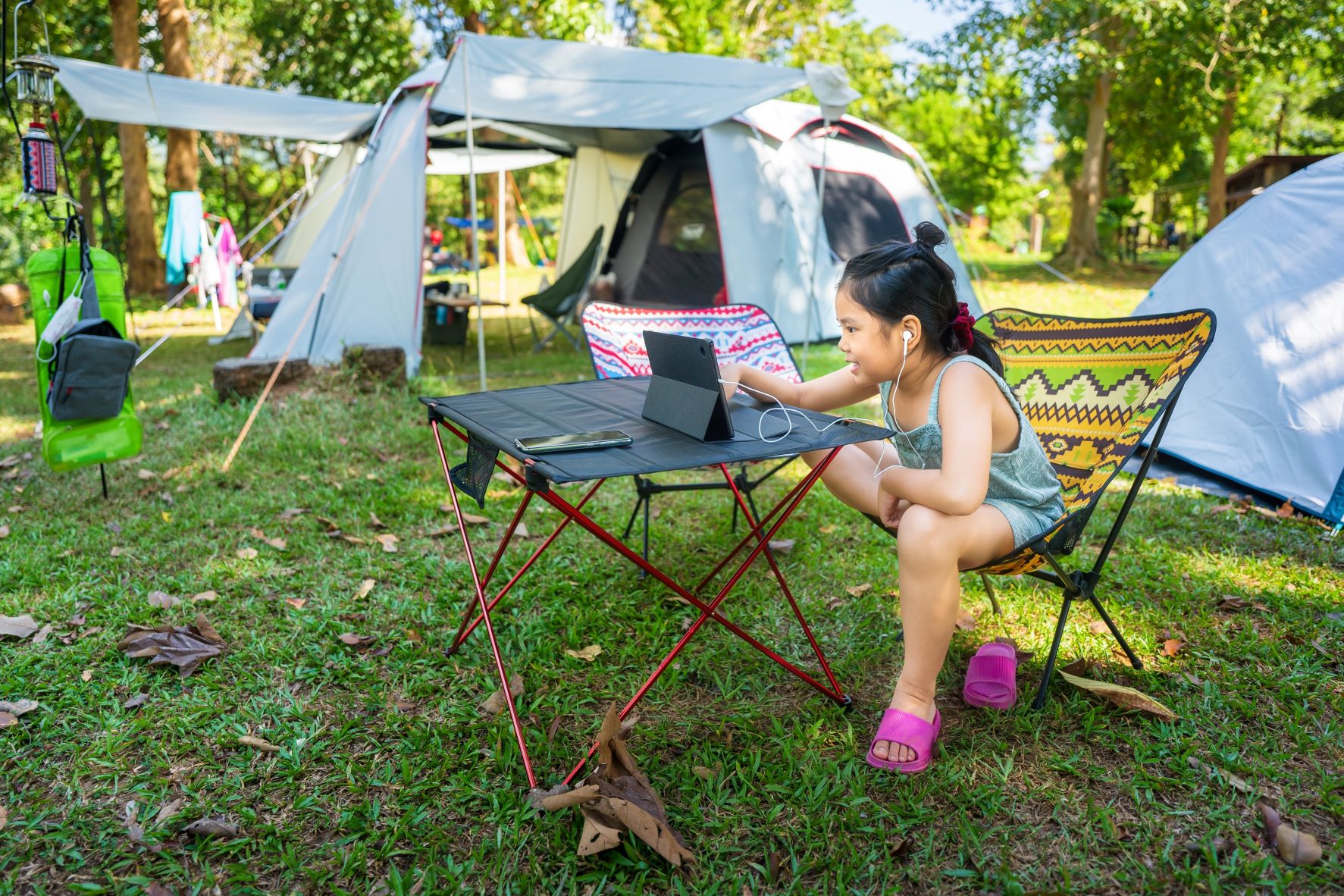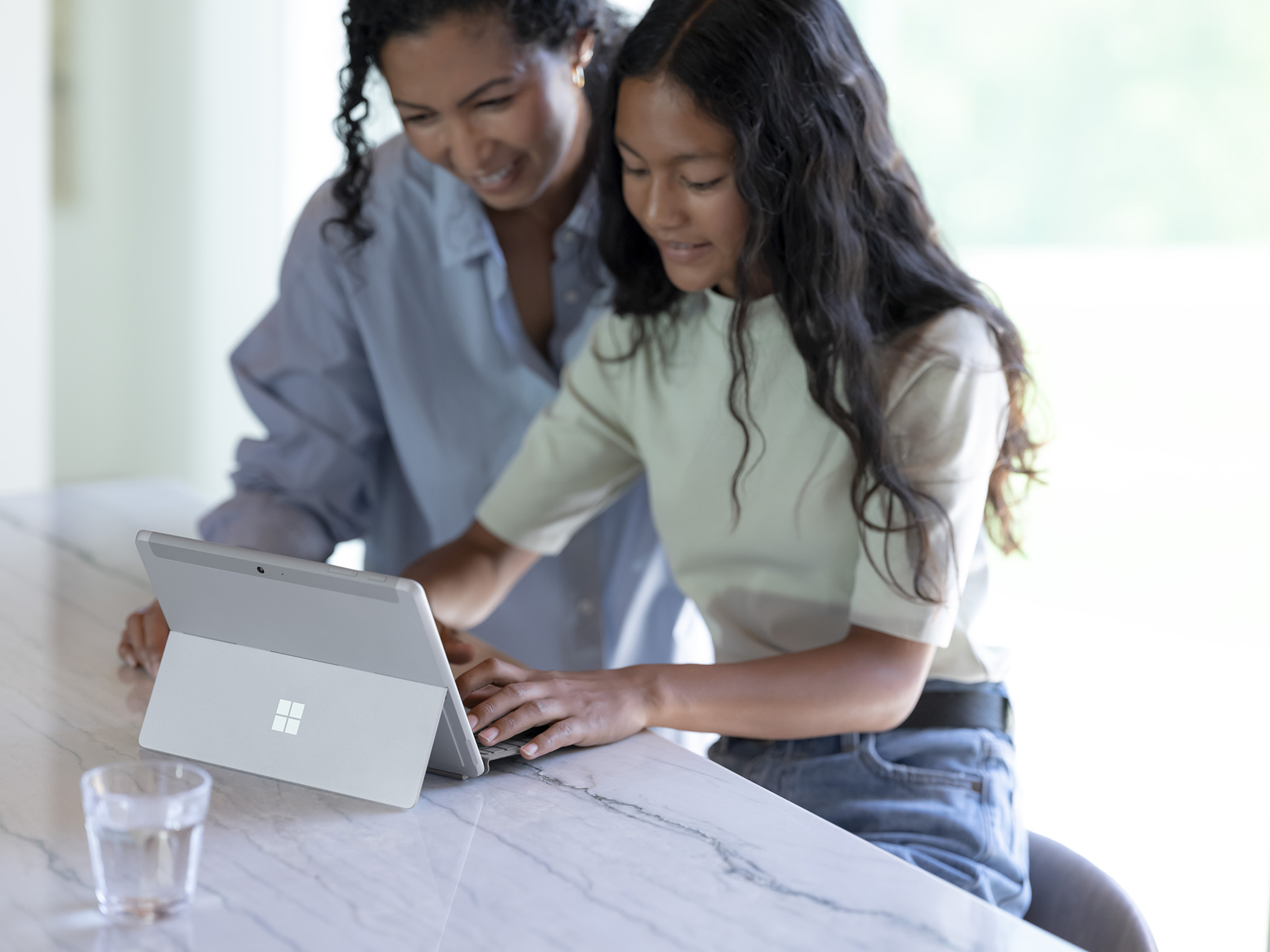
GPS devices are a great way for parents to keep track of their kids as they take their first steps towards independence. But when does monitoring become intrusion? We spoke to a parent and a psychologist for some guidance.
They look cute. They’re colourful. They have cool features. Oh, and they allow parents to keep a watchful eye over their kids. If a smartwatch with GPS isn’t on your child’s birthday list this year, it may well be on yours.
What parent wouldn’t be tempted by the ability to track their child’s whereabouts accurately and within seconds, simply by reaching for their phone and tapping the app connected to a smartwatch?
While such devices can be an exciting first step into the digital world, how do we make sure we use them ethically as kids grow older?
Here, a parent and a psychologist share their individual experiences, to help you work out how best GPS tech might work for you, your child and your relationship.
Matilda Kent, 42, mother of two from London
Our daughter has just turned 10. She’s hovering between being a little kid, with me constantly at her side, and becoming a teenager, with the skills and confidence to navigate the world on her own.
My husband and I both work in tech, so we aren’t afraid of it, but we don’t use it unquestioningly, either. We spend a lot of time thinking about how to use it positively. So a couple of months ago, we ordered a GPS-enabled device for her.
We sat down and talked to Alice about it first, so we all knew what it was for and why it might be helpful. She wants to start walking the short journey to school on her own, and while the late afternoons are still dark, knowing that she has this device with her gives us all the confidence to make that happen.
To us, it’s a useful, temporary measure. When I was a child, starting to take small trips to the shops alone, my mum would walk a little way behind me. This feels much the same, just with a technological upgrade.

GPS trackers can help parents worry less when the time comes for kids to make their own way to school
We would never track Alice without her knowledge, and we’ll stop using it in a couple of years. She needs to learn how to navigate the world without my supervision and, to my mind, continuing to use it once she has those skills would be unethical and unhelpful.
But at this stage in her life, this technology gives her the chance to begin developing some independence, while also granting us all a greater degree of safety. Alice now has the bravado and confidence of a teen, but occasionally reveals that she’s still a little girl. The first time I let her walk to the park alone, she stopped to see a friend’s new kitten. She was totally safe, but 20 minutes late. With this technology, I’ll be able to check where she is, be reassured, and not waste any time worrying.
Emma Citron, Consultant Clinical Psychologist
The key word here is collaboration. The danger is that these devices could be used as a method through which parents attempt to control their children, undermining the trust between them.
It might start out as a means of reassuring you that your child is safe, but reassurance-seeking is often less useful than you’d imagine for natural worriers, and this is an example of when it could backfire for a parent’s mental health.
I’ve heard of parents turning up at a cafe to check if their child is actually there. Other parents check to see whether their child has just given the gadget to someone else in order to hoodwink them over their real location. Parents can become totally obsessive, in a really unhealthy way.
Teens might not be going out so much during the pandemic, but in some ways, coronavirus has fed this unhealthy form of parental control. The impulse is all the greater to ask: “What are you doing? Where are you going? Are you bringing the virus into the house by breaking the rules?”
But as parents, we really want to foster safe, independent, free-thinking individuals who can take responsibility for their own decisions. Sometimes that involves letting them make mistakes, because that’s how we learn. Teens do take risks and that can be scary for parents, but in fact the process is crucial to their neural development.
On the flip side, if approached collaboratively, these devices could be a useful stepping-stone towards greater independence, especially for kids aged 11 to 13, who are beginning to take public transport, go to shopping centres, or visit friends’ houses.
Bear in mind though, that if you’re expecting them to wear something like a watch then it mustn’t feel embarrassing for them. It must be something that’s perceived as cool and won’t work against their social standing. We parents need to be sensitive to how much this matters to teens and pre-teens.
Introduce the concept of these devices in a neutral way and have a genuine discussion. Don’t give them as a gift, under the auspices of, say, fitness or health tracking, if actually you have another agenda and it’s to track their whereabouts. It should be totally clear to all parties what the aims and parameters of use are.
It’s always important to try to keep up open dialogue with your teens in a non-judgemental and non-critical manner, listening to their concerns as well as voicing your own. This way they’ll be more likely to talk with you when they need support and advice.
An older teen might say to you: “Look, I get a bit scared when I’m at a party and I worry if I’m safe, so I’d actually feel quite reassured to have this technology turned on. But I’d also like to be able to disable it at times.”
The truth is, compromises like this are much more likely to be stuck with. Teenagers usually lie because they feel communication and compromise are impossible. Any parent should be delighted to be trusted in that way. It’s a real honour. It’s not only our children who have to earn the right to be trusted.
So is it right for your family?
As with any household addition – from peloton to pool to pandemic puppy – your family is the best judge of whether a GPS tracker smartwatch would enhance your communication or put a strain on relationships. A lot clearly depends on the age and maturity of the child.
As Emma Citron writes, it’s all about collaboration, and using these tech tools as a facilitator for communication, not as a means of control.
Follow @VodafoneUKNews on Twitter.
![Small girl with dad using tablet[Aobe Stock] Small girl with dad using tablet.](https://www.vodafone.co.uk/newscentre/wp-content/uploads/2025/11/Small-girl-with-dad-using-tabletAobe-Stock.jpeg)







![worried mother hugging upset teenage daughter [Adobe Stock] A stock image of a worried mother hugging her upset teenage daughter.](https://www.vodafone.co.uk/newscentre/wp-content/uploads/2025/02/worried-mother-hugging-upset-teenage-daughterAdobe-Stock-Optimised.jpg)
